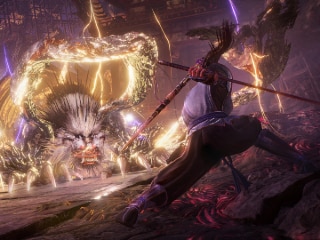Google Unveils AI Co-Scientist, a Gemini 2.0-Powered Multi-Agent System to Speed Up Scientific Discovery
Google’s AI co-scientist can generate new research hypotheses, research overviews, and experimental protocols.

Photo Credit: Unsplash/Gerard Siderius
Google said that the AI co-scientist is designed to be an assistant and not replace the scientist
Google unveiled a new artificial intelligence (AI) system on Wednesday that can assist scientists in the scientific discovery process. Dubbed AI co-scientist, the tool is powered by the Gemini 2.0 AI model and includes a multi-agent system that specialises in different tasks in the discovery process. The Mountain View-based tech giant stated that the AI system is designed to be a collaborative tool and not replace the human scientist. It is currently not available in the public domain, with Google planning to further test the system before releasing it.
Google Unveils AI Co-Scientist
In a blog post, the tech giant detailed the new AI system. The multi-agent tool can mirror the reasoning process that is used by the scientific community for novel discovery. Some of the tasks it can perform include standard literature review, summarisation, researching hypotheses and proposals, as well as completing specific research objectives. Notably, the AI co-scientist also features the Deep Research tool recently released to Gemini Advanced users.
The AI system features several specialised AI agents including Generation, Reflection, Ranking, Evolution, Proximity and Meta-review. Google says these agents were inspired by popular scientific methods. These agents can complete individual tasks as well as interact with each other to iteratively generate, evaluate, and refine hypotheses. These agents are also monitored by a supervisor agent.
“We're seeing promising early results in important research areas like liver fibrosis treatments, antimicrobial resistance, and drug repurposing,” said Google CEO Sundar Pichai, in a post on X (formerly known as Twitter).
To start the process, scientists can interact with the system by specifying the research goal in natural language. They can also suggest their seed ideas and proposals for the AI to develop hypotheses around them. While the AI co-scientist works, the scientist can also provide feedback on the generated output to further fine-tune the process. The AI system uses tools such as web search and specialised AI models to enhance the grounding and quality of generated output. The details of how the tool works are detailed in a research paper.
One of the unique aspects of this AI system is the test-time compute scaling capability that lets it second guess and verify its responses. This allows the AI co-scientist to iteratively reason, evolve, and improve outputs.
However, it should be mentioned that Google's AI co-scientist is not capable of true innovation, which is often a prerequisite to making a scientific discovery. In the end, all of its information and hypotheses come from either its existing database or from web searches. While its reasoning capability does allow it to expand on ideas and test its validity, its role is unlikely to be larger than that of an assistant.
The full capability of the AI system can only be assessed once the tool is released. Currently, Google is evaluating its strengths and limitations in science and biomedicine. The company has started a Trusted Tester Programme, through which it is enabling access to the AI co-scientist to research organisations. Those interested can join the programme by filling out this Google form.
Get your daily dose of tech news, reviews, and insights, in under 80 characters on Gadgets 360 Turbo. Connect with fellow tech lovers on our Forum. Follow us on X, Facebook, WhatsApp, Threads and Google News for instant updates. Catch all the action on our YouTube channel.
Related Stories
- Samsung Galaxy Unpacked 2025
- ChatGPT
- Redmi Note 14 Pro+
- iPhone 16
- Apple Vision Pro
- Oneplus 12
- OnePlus Nord CE 3 Lite 5G
- iPhone 13
- Xiaomi 14 Pro
- Oppo Find N3
- Tecno Spark Go (2023)
- Realme V30
- Best Phones Under 25000
- Samsung Galaxy S24 Series
- Cryptocurrency
- iQoo 12
- Samsung Galaxy S24 Ultra
- Giottus
- Samsung Galaxy Z Flip 5
- Apple 'Scary Fast'
- Housefull 5
- GoPro Hero 12 Black Review
- Invincible Season 2
- JioGlass
- HD Ready TV
- Laptop Under 50000
- Smartwatch Under 10000
- Latest Mobile Phones
- Compare Phones
- OPPO A6v 5G
- OPPO A6i+ 5G
- Realme 16 5G
- Redmi Turbo 5
- Redmi Turbo 5 Max
- Moto G77
- Moto G67
- Realme P4 Power 5G
- HP HyperX Omen 15
- Acer Chromebook 311 (2026)
- Lenovo Idea Tab Plus
- Realme Pad 3
- HMD Watch P1
- HMD Watch X1
- Haier H5E Series
- Acerpure Nitro Z Series 100-inch QLED TV
- Asus ROG Ally
- Nintendo Switch Lite
- Haier 1.6 Ton 5 Star Inverter Split AC (HSU19G-MZAID5BN-INV)
- Haier 1.6 Ton 5 Star Inverter Split AC (HSU19G-MZAIM5BN-INV)

















